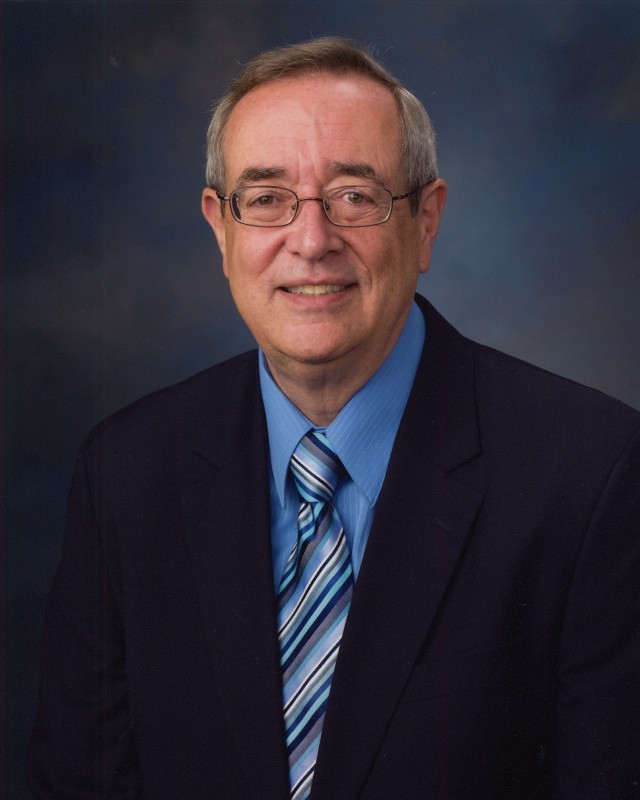Robert Kelley Memorial Award: Reflections from Don Ritchie
18 March 2016 – Donald Ritchie

Don Ritchie. Photo credit: the author
Whenever a public historian asks me whether it’s worth the time and effort to run for office in a historical association, or to serve on a committee, I strongly recommend giving it a try. Over the nearly forty years I spent at the Senate Historical Office, I calculate that I spent almost half of that time also serving in one elected office or another in various historical associations and beyond that on any number of standing or ad hoc committees. Although you had to balance your time and work hard to make sure these assignments never distracted from your employment, the service invariably proved an asset. It expanded my network of colleagues within the history profession, constantly showed me new developments in the field, and gave me a chance to help find solutions to some knotty problems that occurred. In particular, I count our collective efforts to preserve federal oral history projects from being prematurely opened under the Freedom of Information Act, and to counter the invasive influence of Institutional Review Boards, as worthy achievements.
In retrospect, however, one of my most enjoyable, and consequential, experiences was working with the editors of The Public Historian back in the 1980s and 1990s. Facing the unpredictability of submissions from issue to issue, the editors had the idea of creating a “Pioneers in Public History” series of oral history interviews that would run on a regular basis and would also be available to plug holes in an issue if a planned article failed to appear in time for publication. I served on the founding committee with two other veteran oral historians and good friends, Cullom Davis and Charles Morrissey. We identified some likely interviewers and interviewees and set a framework for conducting and editing the interviews. Then we twisted a few arms to convince people to participate.
The series began on a high note with Arnita Jones’ interview of Wayne Rasmussen, the historian of the US Department of Agriculture, whose service went back to the days of Henry Wallace. Reader response was positive, and we began collecting other interviews. Holly Schulman interviewed the distinguished military historian Forrest Pogue, who conducted interviews for the Army at Normandy Beach during the invasion. He stayed aboard a hospital ship the first day of combat, explaining that the Army wanted live history and live historians as well. Jo Anne McCormick Quatannens interviewed Richard Hewlett, the pioneer historian of the Atomic Energy Commission, and Jim Gardner interviewed David Trask, who headed the State Department’s historical office.
I had the pleasure of interviewing “History’s Lobbyist,” Page Miller, about her long career pounding the corridors of Capitol Hill, working to benefit and protect the history profession. Eventually, I rotated off of the committee and the editorial board, but the project went on, and I have continued to enjoy its subsequent output, interviews ranging from John Hope Franklin, who applied his mastery of African American history to court testimony in some landmark civil rights cases, to Alberta Sebolt George, who promoted “living history” at Old Sturbridge Village. I learned something new from each interview–even from people I thought I had known very well for years.
There’s another side to this story. The Public Historian’s editorial board meetings were some of the most productive and convivial experiences I can recall, with the professional side being followed socially by a dinner that would cap the meeting. Those events were well supplemented by Dwight Pitcaithley’s unending and eclectic supply of beers he had collected in the vicinity of remote national parks across the country. Public historians know how to have a good time–and looking back, I count it as time well spent.
—Donald A. Ritchie, is historian emeritus, US Senate
Editor’s note: This post continues the History@Work tradition of honoring winners of NCPH’s annual awards. Don Ritchie is the 2016 winner of the Robert Kelley Memorial Award. This award seeks to perpetuate the legacy and memory of a founder of the public history movement, Dr. Robert Kelley. It honors distinguished and outstanding achievements by individuals, institutions, non-profit or corporate entities for having made significant inroads in making history relevant to individual lives of ordinary people outside of academia.




